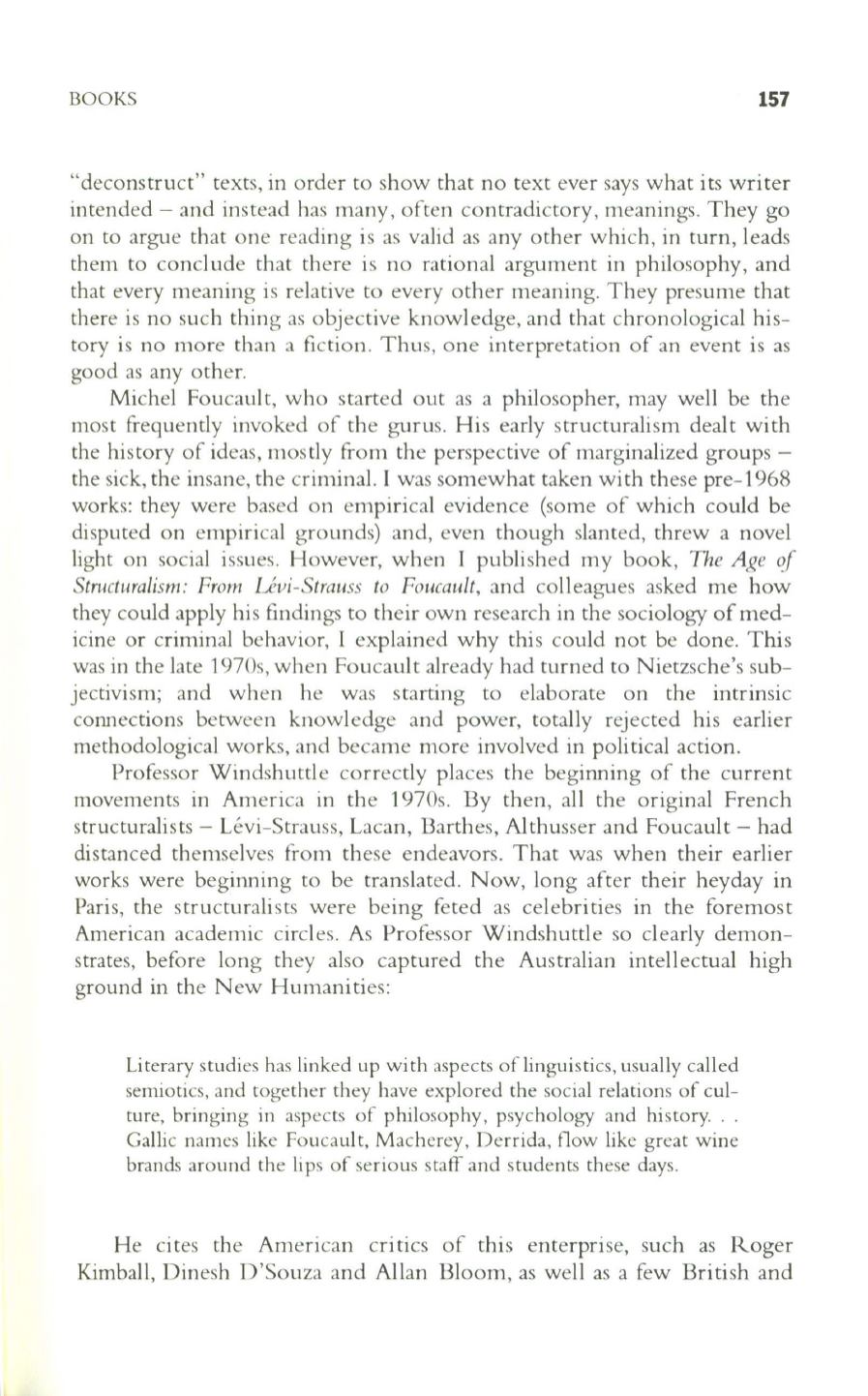
BOOKS
157
"deconstruct" texts, in order to show that no text ever says what its writer
intended - and instead has many, often contradictory, meanings. They go
on to argue that one reading is as valid as any other which, in turn, leads
them to conclude that there is no rational argument in philosophy, and
that every meaning is relative to every other meaning. They presume that
there is no such thing as objective knowledge, and that chronological his–
tory is no more than a fiction. Thus, one interpretation of an event is as
good as any other.
Michel Foucault, who started out as a philosopher, may well be the
most frequently invoked of the gurus. His early structuralism dealt with
the history of ideas, mostly from the perspective of marginalized groups -
the sick, the insane, the criminal. I was somewhat taken wi th these pre-1968
works: they were based on empirical evidence (some of which could be
disputed on empirical grounds) and, even though slanted, threw a novel
light on social issues. However, when I published my book, The
Age
if
Structuralism: From Uvi-Strauss to Foucault,
and colleagues asked me how
they could apply his findings to their own research in the sociology of med–
icine or criminal behavior, I explained why this could not be done. This
was in the late 1970s, when Foucaul t already had turned to Nietzsche's sub–
jectivism; and when he was starting to elaborate on the intrinsic
connections between knowledge and power, totally rejected his earlier
methodological works, and became more involved in political action.
Professor Windshuttle correctly places the beginning of the current
movements in America in the 1970s. By then, all the original French
structuralists - Levi-Strauss, Lacan, Barthes, Althusser and Foucault - had
distanced themselves from these endeavors. That was when their earlier
works were beginning to be translated. Now, long after their heyday in
Paris, the structuralists were being feted as celebrities in the foremost
American academic circles. As Professor Windshuttle so clearly demon–
strates, before long they also captured the Australian intellectual high
ground in the New Humanities:
Literary studies has linked up with aspects of linguistics, usually called
semiotics, and together they have explored the social relations of cul–
ture, bringing in aspects of philosophy, psychology and history...
Gallic names like Foucault, Macherey, Derrida, flow like great wine
brands around the lips of serious staff and students these days.
He cites the American cntlcs of this enterprise, such as Roger
Kimball, Dinesh D'Souza and Allan Bloom, as well as a few British and


